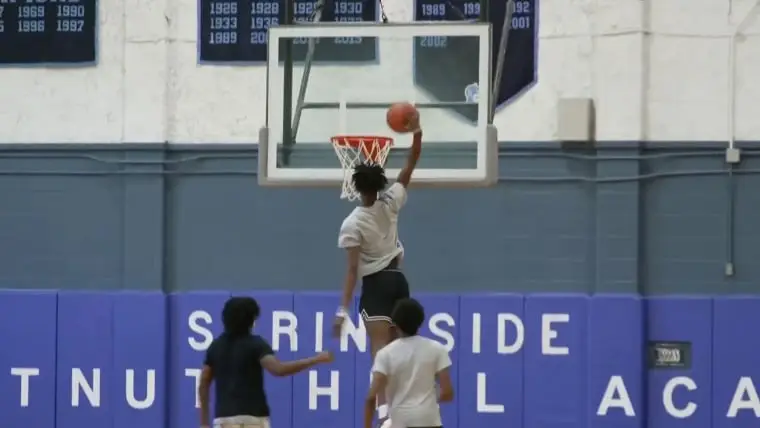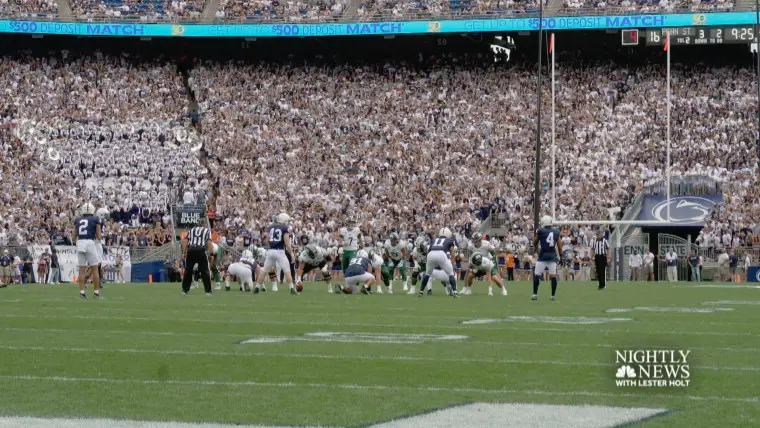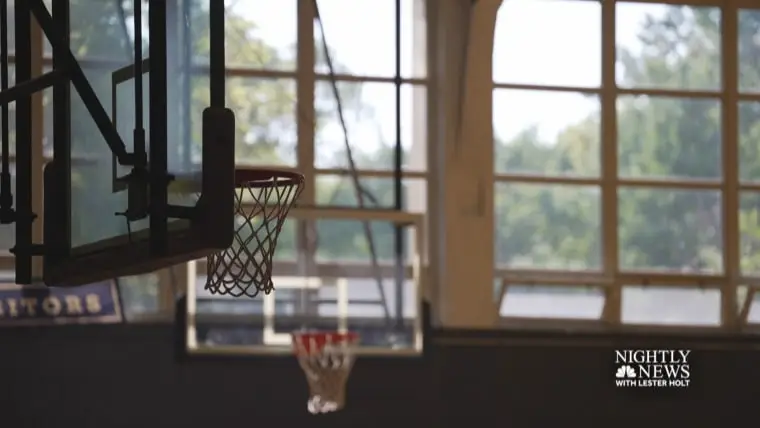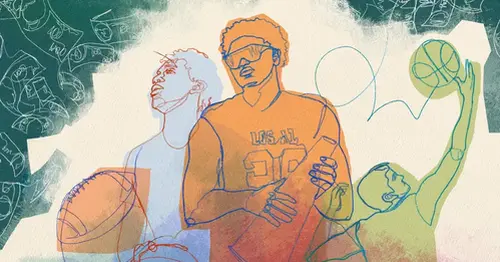
‘There’s no rules. It’s crazy’: New money in NCAA recruiting leaves elite athletes ripe for exploitation
Over the summer, 16-year-old Georgia native T.A. Cunningham transferred to a powerhouse Southern California high school in pursuit of NFL dreams. His father wanted to cash in early with help from agents who boasted stars like Kansas City’s JuJu Smith-Schuster as clients.
The family believed Cunningham stood to earn big in sponsorships, even before he got to college. Instead, the coveted junior recruit was benched, because of a decision from the state’s governing body for high school sports.
“I was shocked,” Cunningham said. “And I think everyone involved with me was shocked, too.”
The story rattled the world of college sports. It was the first incident of career-damaging fallout for a high school star since the NCAA’s decision to slash restrictions on athletes’ profiting from their fame after a Supreme Court loss in summer 2021.
A year after the rule change, so-called NIL deals, named after the initials for Name Image Likeness, have become increasingly common for elite student-athletes like Cunningham, who can now begin profiting from their talent before they play a minute of pro sports.
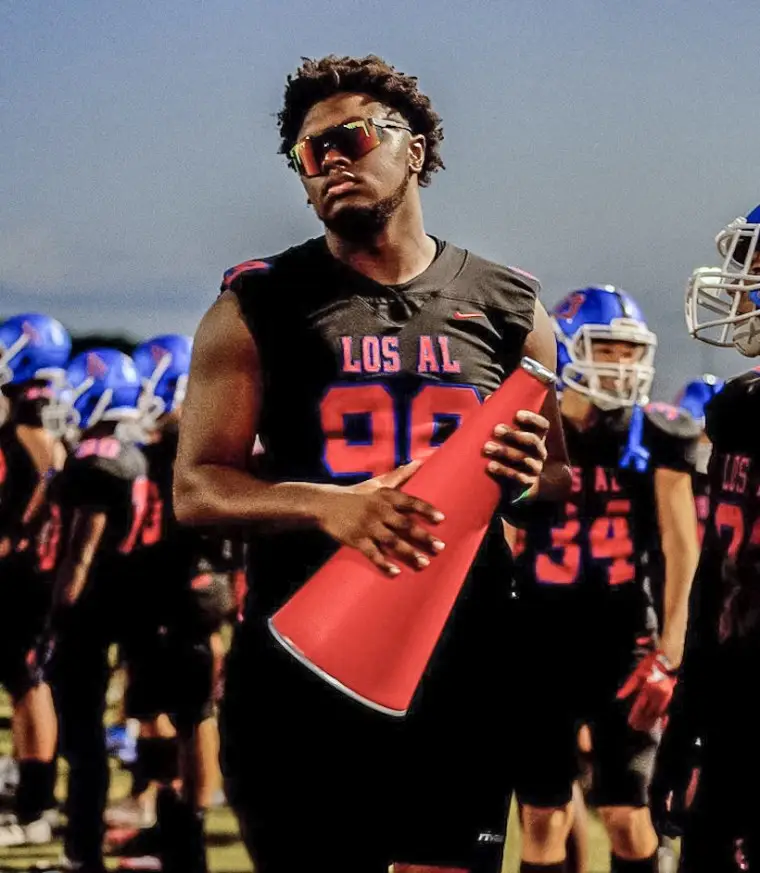
But with that potential for great reward comes great risk. There are few guidelines for young athletes — kids — who are entering this chaotic new marketplace. Many are from low-income homes or difficult circumstances. In pursuit of their dreams or financial security for their families, they can wind up violating state-level restrictions that still pertain to high school athletes, and they can also find themselves exploited by adults who want to get rich off their skills.
NBC News has reviewed a dozen written offers to high schoolers that experts have described as exploitative, including marketing contracts claiming exorbitant commissions of up to 40% and booster contracts with complex fee structures and legal jargon, reducing the athletes’ freedom to transfer or enter outside deals. One “contract” was just a $100,000 loan.
“One of the really surprising things is the amount of people and companies and people that have just come out of the woodwork that had absolutely no experience,” said Courtney Altemus, a former financial manager for professional athletes on Wall Street, who now educates athletes across the country through her company ADVANCE NIL.
Complicated playbook for college athletes after Supreme Court ruling on earning cash
Oct. 17, 202203:38An athletic department administrator at a school in the Southeastern Conference, speaking on condition of anonymity, said: “Once the NCAA lost in court, they basically pulled out of Afghanistan. There’s no rules. It’s crazy.”
‘Now it’s legal’
The NCAA refused to budge on the topic of athlete compensation until the summer of last year, when a Supreme Court ruling questioned the legality of its business model.
“The NCAA’s business model would be flatly illegal in any other industry in America,” wrote Justice Brett Kavanaugh in a concurring opinion for the 9-0 ruling in a case of education-related benefits, accusing the multibillion-dollar industry of suppressing athletes’ pay.
“[E]normous sums of money seem to flow to everyone but the athletes ... many of whom are African American and from lower-income backgrounds.”
College sports’ changing landscape with name, image, likeness deals (Part 1)
Oct. 20, 202203:07The NIL market that has sprouted since the Supreme Court decision includes deals from payments for autographs and social media endorsements to appearance fees for simply showing up.
About two dozen states have encoded the rights of college athletes to enter NIL deals, but the patchwork of laws and rules includes few protections for players in the newly deregulated environment. Meanwhile, in a growing number of states, including California, even high school athletes can enter contracts.
The one NCAA guardrail is that schools cannot directly offer deals to recruit players. But boosters can pay prospective students through NIL deals, as long as the money is not contingent on enrollment or athletic performance. Some “companies” offering deals are just legal shells around pools of booster money.
College sports’ changing landscape with name, image, likeness deals (Part 2)
Oct. 20, 202202:38Creativity is encouraged.
A University of Miami booster has earmarked $10 million to sign players to NIL deals through his companies. A University of Texas offensive lineman can get $50,000 for charity work, offered by donors who saw holes in the roster. A University of Tennessee booster collective reportedly bought NIL rights to the team’s future quarterback for $8 million.
In a statement, the University of Miami said the school’s success has “positioned us well to help our current student-athletes maximize Name, Image & Likeness opportunities during their time at the University. We are appreciative of all our supporters, many of whom have partnered with our student-athletes to help market their businesses.” Texas and Tennessee declined to comment.
Doug Fillis, whose company, Accelerate Sports Ventures, helps manage NIL within college athletic departments, said: “Boosters are looking around and saying, ‘You told me I couldn’t give an athlete a bagel and cream cheese, and now I can give a million dollars? I’ll do 4 [million].”
But recruiting inducements had long existed in the shadows, at least for family members and middlemen who positioned themselves as handlers for recruits. A quip among old-timers is that NIL stands for “now it’s legal.”
“Now, all the shady characters can come out of hiding,” said Andy Bark, who over the past few decades founded many of the top college recruiting events for high school athletes. He described middlemen and boosters who moved money through cars, prepaid debit cards, church baskets, even Starbucks cups stuffed with cash.
“The most misunderstood part is that this is not a new market. It’s just not a dirty little secret anymore.”
The free market is a welcome overcorrection to athletes, despite skepticism around “snake oil,” “early investors” and “a car salesman mentality.”
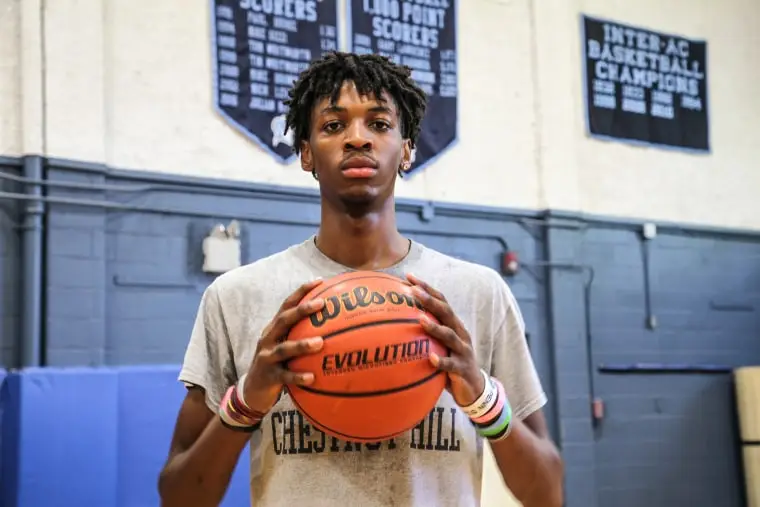
“It could set you up for life,” said Al Amadou, a senior basketball prospect from Sellersville, Pennsylvania, who hopes to get an NIL deal in college to improve housing for his family. “A lot of athletes are going to try to pursue that.”
Amadou was propositioned by an extracurricular coach in the area to create a digital trading card with his highlights for an online recruiting platform. The card he designed on an introductory Zoom call remained online without his knowledge, he said, although he never profited or saw a contract.
“People will take advantage of teenagers, because you don’t know a lot,” Amadou said.
But athletic departments are growing frustrated as unaccountable boosters and agents shape the backroom market for recruits.
“Agents are basically connecting themselves to high school prospects and their families, then going around to schools saying, 'Hey, school X is offering my guy this much money in NIL deals,'” said an athletic department administrator in a Power Five conference.
“But a lot of the numbers are made up. Anyone can call themselves an agent.”
In the past year, 18 state athletic associations have moved to allow NIL deals in high school sports.
“Allowing high schoolers to do this is just amplifying the inducements that are happening,” said Carrie Hoyt, who oversees NIL at Ohio State University. “The hardest part is that everybody recognizes what is happening but nobody knows how to stop it.”
The deals are trickling down regardless of the regulations.
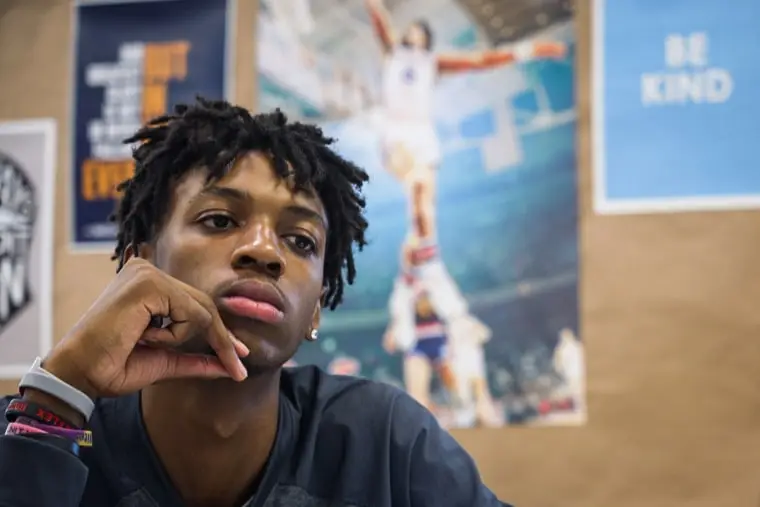
“A lot of colleges will straight up offer you a lot of money,” said Grayson Howard, a top-ranked senior linebacker in Florida. “I had schools come up and say, ‘How much [in order to] get you?’”
Howard said he stayed away from conversations involving money, conscious that taking a deal could jeopardize his eligibility to play high school sports in Florida.
Despite the free-for-all at the college level, state athletic authorities can still pull a high school athlete’s eligibility if they feel the athlete has lost “amateur” status. Loss of amateur status or other rule violations, even in states that allow NIL deals for high schoolers, could keep athletes off the field, lowering visibility to scouts, or otherwise complicate college recruitment.
“I’m lucky I have a good circle,” said Howard, who grew up in inner-city Jacksonville. “If you make a mistake, it could cost you your whole college career.”
‘A lot of promises’
In the midst of financial trouble last year, T.A.'s father, Terrance Cunningham, who goes by "Big Rev," developed a plan to send his two sons to California, where they could make money without losing eligibility.
The logistics fell to a premier athlete management firm called Levels Sports Group. Days after having met the agents over the phone, T.A. Cunningham left home on an expenses-paid tour of the University of Southern California, UCLA, Michigan, Michigan State, Central Michigan, Notre Dame, Texas and Texas A&M.
“I will go with you and introduce you to all the big boosters,” one of the agents texted Cunningham’s father before signing Cunningham to an exclusive marketing contract that specified “no inducement, no pay-for-play,” according to exhibits later included in a legal filing.
Cunningham said he never returned home after the recruiting trip. He said his clothes arrived in vacuum-sealed bags as his family fought an eviction. He signed with Levels Sports and transferred to a public high school in Orange County, sleeping on the couch of his new trainer and agent, “Coach Frogg,” aka Chris Flores, whose list of all-star clients included NFL cornerback Adoree' Jackson, NFL wide receiver JuJu Smith-Schuster, Alabama quarterback Bryce Young and Clemson quarterback D.J. Uiagalelei.
“A lot of big names were brought up, a lot of promises made,” Cunningham said. “I was just excited to play ball.”
The NIL profits never came, and when the Los Alamitos High School football team debuted under the lights, he was on the sidelines; he was later told he had to sit out a year.
The problems had nothing to do with money.
Cunningham was joining a roster that had benefited from a variety of transfers in recent years and boasted the state’s top two senior players as rated by ESPN: quarterback Malachi Nelson, the nation’s #1 recruit, and #2 wide receiver Makai Lemon, both clients of Flores.
But then someone sent an email asking the California Interscholastic Federation to investigate a “massive influx of transfers in specifically for football.”
“Our concern is primarily focused on the possibility of exposure to devastating injuries while playing vs players such as TA Cunningham,” the email said, requesting anonymity “for fear of threats.”
The email suggested the school was complicit in “building illegal mega teams” and referred to ties to Flores’ training academy, according to a copy included as an exhibit in a legal filing.
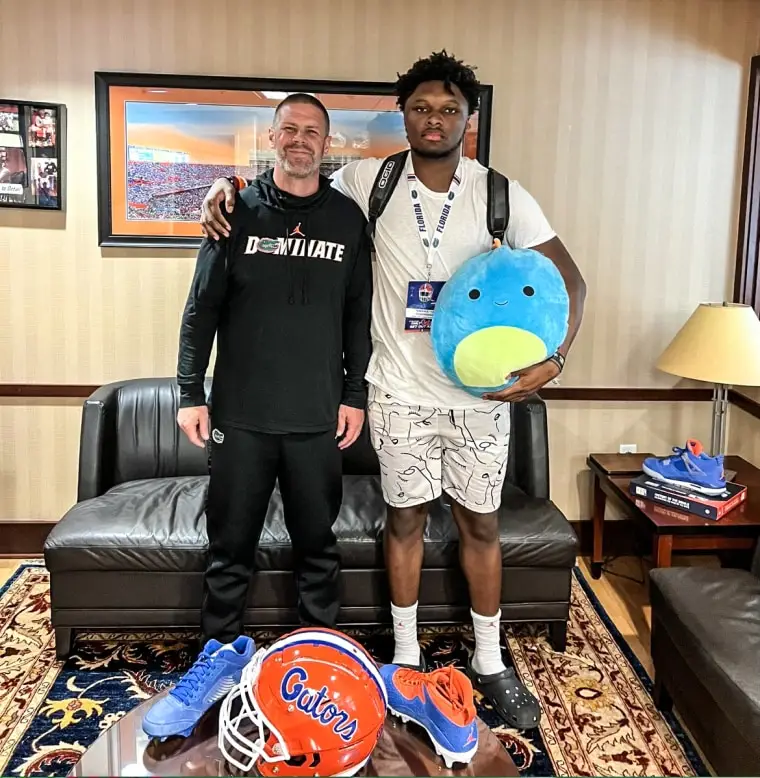
Rob Wigod, who heads the CIF Southern Section, was familiar with the complaints and rejected Cunningham’s application — failing to see how a voluntary move to California qualified as homelessness.
“We’ve got people who are working completely independently of colleges, doing their own recruiting for those colleges,” Wigod said, describing an emerging pattern of college recruiters’ flouting high school bylaws in the wake of NIL. “And now we see some of that moving into high schools, where we believe we’ve got kids transferring to play with future teammates, getting NIL deals.”
Days later, CIF was served with a petition for a preliminary injunction spelling out how the junior star got swept up in an NIL recruiting scheme that fell apart.
“I think a lot of us read all that and thought, is that really how this is done?” Wigod said. “Look at what it does to a young person in terms of exploiting them and taking advantage of them.
“I think that is a very scary thing going down the road for young people to have in front of them.”
Among the exhibits in Cunningham’s filing were text messages, marketing materials, the anonymous complaint and Cunningham’s contract — an exclusive marketing agreement that claimed 20% commission on any money Cunningham’s brand might generate, even if Levels Sports played no part in the deal. The term was indefinite with a one-month opt-out clause, allowing agents to recoup expenses and enter deals on Cunningham’s behalf.
“It’s very clear that what they were trying to do was actually hook him in for his NFL career,” said Cunningham’s attorney, Michael Caspino, a well-known NIL dealmaker for five-star recruits. “That’s what a lot of these agents are trying to do.”
Mitch Schuster, an attorney for Levels Sports, described the contract as “relatively standard” and disputed allegations that promises of deals, meals and housing lured Cunningham to California.
“Any time you meet with a prospective client, you discuss a game plan,” Schuster said. “No guarantees were made.”
The CIF ruled in T.A. Cunningham’s favor, and the Cunningham family dropped legal proceedings. Los Alamitos High School declined to comment but noted that the CIF investigation did not find a violation in regard to the district and the student.
Meanwhile, whatever plans Levels Sports may have had to turn T.A. Cunningham into an asset fell apart after Flores was arrested on charges related to sexual exploitation of a minor female. Flores pleaded not guilty, and his attorneys declined to comment on all allegations. Schuster said the agency is dissolving and that it has released its clients from their obligations.
Cunningham’s message to high school athletes is “the grass isn’t always greener,” even in California. He has no plans to return to Georgia, where his parents still live.
Source: https://www.nbcnews.com/news/us-news/star-high-school-athletes-can-now-profit-nil-deals-rcna51075
